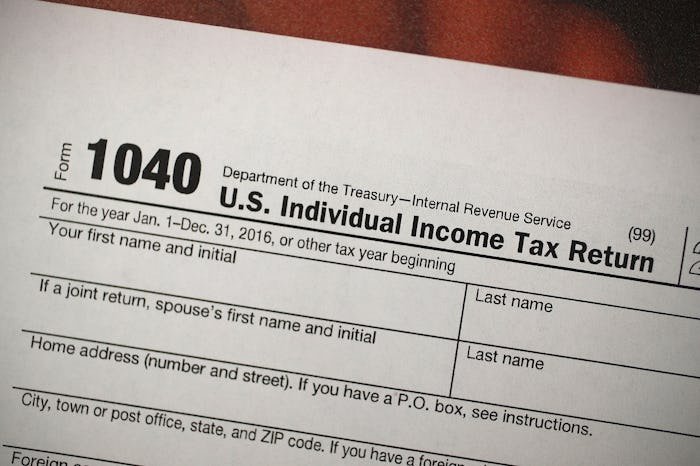Life

IRS Phone Scams Happen All The Time — Here's How To Know If They're Real Or Not
"Ms. Bowen, I'm calling from the U.S. Marshall's Office on behalf of the IRS because you owe $5,000 in back taxes. If you don't pay today, we will have to come and arrest you." I've received multiple calls like this. I don't know if I've filled out too many Facebook quizzes or if I'm just lucky, but I get more scam phone calls than anyone I know. Thankfully, I'm not so easily scammed by phony IRS calls as I am pricey face masks, or I'd be in trouble. But these IRS phone scams can still be scary, so what should you do?
It's pretty simple. You give them no information and immediately report the call to the IRS at 800-829-1040. But how do you know if it's a scam? If anyone calls you, claiming to be from the IRS, they're lying. According to the IRS, they will not call you, nor will they have an outside agency call you to threaten you with arrest if you don't pay up. They are pen and paper people, according to their website. If you are in arrears, or if you are going to be audited, they flood your mailbox with notices first. If that doesn't work, and they still cannot get to you, they will send a representative to your home or office to speak with you.
Again, they'd send a mailer first.
If someone does come a knockin' from the IRS and they're demanding your time and your cold, hard cash, you need to know how to identify them. According to the IRS, "If an IRS representative visits you, he or she will always provide two forms of official credentials called a pocket commission and a HSPD-12 card. HSPD-12 is a government-wide standard for secure and reliable forms of identification for federal employees and contractors."
If you're still unsure, you are completely within your rights to call the IRS while they are there and double check these credentials, as well as make sure your case is under investigation.
As per the IRS, the organization absolutely will not "call to demand immediate payment using a specific payment method such as a prepaid debit card, gift card, or wire transfer. Generally, the IRS will first mail a bill to any taxpayer who owes taxes." I can attest to this. A few years ago after I made a lump sum and did not pay the appropriate amount (a calculation and ignorance error on my part), they sent many, many letters even as I continued to pay.
They also won't "demand that you pay taxes without the opportunity to question or appeal the amount they say you owe. You should also be advised of your rights as a taxpayer." I did appeal after speaking with my accountant — and I won. Take that, IRS.
And they never ever "threaten to bring in local police, immigration officers, or other law enforcement to have you arrested for not paying. The IRS also cannot revoke your driver’s license, business licenses, or immigration status." If the Mueller investigation has taught us anything, it's that the IRS gives you zero warning or threats before they move in to arrest you. Just ask Paul Manafort.
What should you do if you get an IRS scam call at work? Report it to both the IRS and your boss or HR so they know that scammers are calling your office.
I get them so often at this point that if I do pick up the call, I tend to screw with them right back. My current favorite line of reasoning with them is asking if I can pay with expired coupons. They generally get so fuming mad that they just hang up. It's pretty great actually.
Check out Romper's new video series, Bearing The Motherload, where disagreeing parents from different sides of an issue sit down with a mediator and talk about how to support (and not judge) each other’s parenting perspectives. New episodes air Mondays on Facebook.